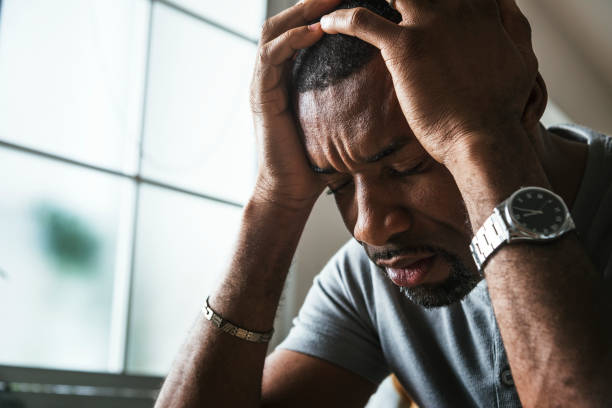Anxiety and depression are two of the most common mental health disorders affecting millions of people worldwide. Though distinct conditions, they often coexist, making it essential to understand their symptoms, causes, and the importance of seeking timely treatment. Anxiety and depression
Understanding Anxiety: Anxiety and Depression
Anxiety is a natural response to stress or danger. However, when it becomes persistent or overwhelming, it may be classified as an anxiety disorder. This can disrupt daily life and negatively impact mental and physical health.
Symptoms of Anxiety
- Emotional Symptoms:
- Constant worry or fear
- Feeling tense or on edge
- Difficulty concentrating
- Physical Symptoms:
- Rapid heartbeat (palpitations)
- Sweating excessively
- Shortness of breath or chest tightness
- Nausea or stomach upset
- Trembling or shaking
- Behavioral Symptoms:
- Avoidance of certain places or situations
- Restlessness or irritability
- Sleep disturbances, such as insomnia
Understanding Depression
Depression goes beyond temporary sadness. It’s a prolonged state of emotional and physical exhaustion that can impair daily functioning and relationships.
Symptoms of Depression
- Emotional Symptoms:
- Persistent sadness, hopelessness, or emptiness
- Feeling worthless or guilty
- Loss of interest in previously enjoyable activities
- Physical Symptoms:
- Low energy or constant fatigue
- Appetite changes leading to weight loss or gain
- Sleep disturbances, such as insomnia or oversleeping
- Behavioral Symptoms:
- Withdrawal from friends and family
- Difficulty making decisions or focusing
- Increased thoughts of death or self-harm
Causes of Anxiety and Depression
Both conditions can have a variety of causes, including:
- Biological factors: Genetics or chemical imbalances in the brain
- Environmental factors: Stressful life events like job loss, trauma, or relationship issues
- Psychological factors: Low self-esteem or unresolved emotional issues
- Lifestyle factors: Poor sleep, unhealthy diet, or lack of exercise
When to Seek Professional Help
It’s crucial to consult a healthcare professional if you or a loved one experiences:
- Persistent or worsening symptoms
- Difficulty performing daily tasks
- Thoughts of self-harm or suicide
For a professional diagnosis and personalized treatment, consult a qualified medical doctor. Use the Virtual Doctors App to book an appointment or download the Virtual Doctors Healthplus App for convenient online consultations.
Treatment Options: Anxiety and Depression
Treatment for anxiety and depression often involves a combination of:
- Therapy:
- Cognitive-behavioral therapy (CBT) helps identify and change negative thought patterns.
- Talk therapy offers emotional support and coping strategies.
- Medication:
- Antidepressants or anti-anxiety medications may be prescribed to balance brain chemicals.
- Lifestyle Changes:
- Regular exercise to boost mood and reduce stress.
- A healthy diet rich in nutrients for better mental health.
- Mindfulness practices such as yoga or meditation.
- Support Groups:
- Sharing experiences with others can help reduce feelings of isolation.
Why Early Intervention Matters
Untreated anxiety and depression can worsen over time, potentially leading to severe mental and physical health complications. Seeking help early improves the chances of recovery and a return to a fulfilling life. For reliable, professional care, register on the Virtual Doctors App or download the Virtual Doctors Healthplus App.
Anxiety and depression are challenging but manageable with the right support and treatment. Recognizing the symptoms early and seeking professional help is the first step toward healing and well-being. Don’t hesitate to take action today for a healthier tomorrow.
